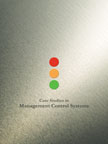Operations Management




Details
Textbook:
Pages : 329;
Paperback;
210 X 275 mm approx.
Workbook:
Pages :
239; Paperback;
210 X 275 mm approx, Sample Applied Theory Questions
Courier charges extra
Pricing
Textbook Price: Rs. 900;
Workbook Price: Rs. 700;
Available only in INDIA
Detail Table of Contents
Click below to view
HTML
Buy Now
Please allow 5 to 10 days for delivery.

Detail Table of Contents
Click below to view
HTML
<< Chapter 15
Supply Chain Management : Chapter 16
SUMMARY:
A supply chain consists of suppliers, manufacturers, distributors and retailers whose combined efforts result in production, selling and delivery of products and services. The objectives of supply chain management are to reduce operation costs, improve coordination between channel partners, reduce lead time, improve the reliability of the delivery system, reduce inventory costs, etc.
The key drivers of supply chain management that determine the overall competitiveness and responsiveness of the organization relate to inventory, transportation, facilities and information. The complete supply chain is made up of many channel partners and many processes. These processes can be viewed from two perspectives: the cycle view and the push/pull view.
|
|
Supply chain management encompasses several activities and partners. The forces which are responsible for making the supply chain effective are consumer demand, globalization, competition, information and communication, government regulations and environment. The supply chain enablers, which determine performance, are alignment, measurement, participation and involvement, customer-supplier focus, design and periodic review.
Supply Chain Management - An Overview
Business Drivers in Supply Chain Performance
Inventory
Transportation
Facilities
Information
Principles of Supply Chain Management
Segment Customers Based on Service Needs
Customize the Logistics Network
Plan Based on Market Demand
Enhance Ability to Meet Customer Requirements
Improve Relationships with the Suppliers
Have a Supply Chain-wide Technology Strategy
Devise a Complete Supply Chain Performance Measure
Forces Shaping Supply Chain Management
Consumer Demand
Globalization
Competition
Information and Communication
Government Regulation
Environment
Supply Chain Management Framework
The Seven SCM Components
The Six SCM Enablers
Customer Focus in Supply Chain Management
Demand-Chains: A Focus on End Users
Broad Trends and Misconceptions
Creating the Demand Chains of the Future
Electronic Supply Chain Management
ESCM – Advantages
ESCM – Implementation
Issues Relating to ESCM
Related Case Books:-
 Case Studies in Management Control Systems
Case Studies in Management Control Systems
20 Case Studies
490 pages, Paperback,
Available only in
INDIA

Related Textbook:-
 Project Management Textbook
Project Management Textbook
528 pages, Paperback;
210 X 275 mm approx,
Price:
Rs. 900 ;
Available only in
INDIA





